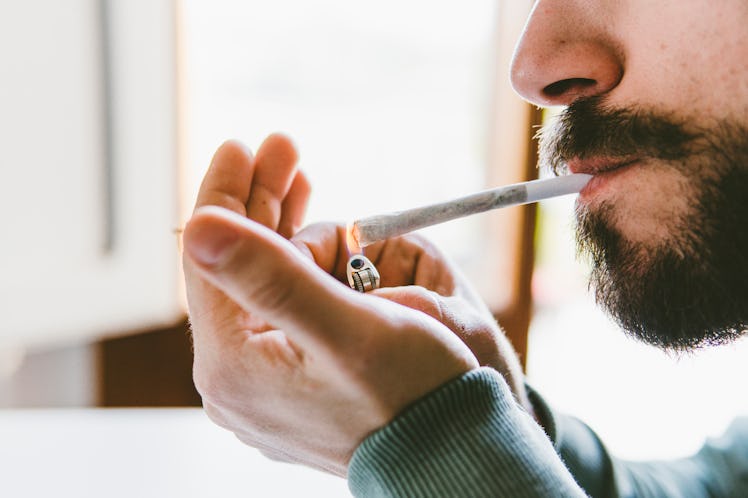Divorce, Family Court, And Legal Weed Don’t Mix Well
Even if it's legal, parents can have their custodial rights compromised for marijuana use.

Scientific research confirms that most people who smoke marijuana before they have kids still occasionally get high after they become parents, and anecdotal research confirms that THC can make pushing a stroller through the park chill as hell. It’s also a relatively safe stimulant in that if parents don’t hide it effectively — it’s really not that hard, get a kid-proof container — marijuana poses no serious medical risk to children. But for parents in the throes of a divorce, moderate, responsible, and even legal pot use represents a very real hazard. Despite shifting cultural and legal norms, marijuana consumption can and does come up in custody negotiations.
“If it’s a really bitter divorce or separation, you may see one party that’s the non-marijuana user call Child Protective Services, or at the very least threaten to,” explains Nicholas Dowgul, a North Carolina-based divorce attorney.
There are two basic ways a parent can have their custodial rights compromised by marijuana use. The first involves the intervention of Child Protective Services (CPS), which typically assesses a parent’s use after receiving a tip (one can guess where such tips come from). The other, more common scenario is during a contentious divorce.
Though this may vary slightly based on state laws, past cases suggest that marijuana can cause custody problems even when it’s legal. In 2016, a California father who used medical marijuana prescribed by a doctor after a car accident petitioned for custody of his baby and was forced by CPS (acting on a tip) to take a drug test that he failed. Instead of going home with his dad, the child, who the mother could no longer care for, was put into foster care. In another case, a grandmother in Maine who sought to obtain custody of her grandchildren was denied because she was using medical marijuana for back pain. Those children have been in state custody for a year.
Still, there’s a limited amount of case law marijuana and custody issues, making outcomes hard to predict. In states where marijuana is illegal, if a complaint is lodged by the other parent as part of a custody dispute, that parent would not have to prove the drug endangered a child. In states where weed is legal, they presumably would have to prove harm or risk (driving under the influence, leaving marijuana where kids can access it, or abusing it to the point of mental instability).
Still, it’s hard to know exactly what that means in practice other than that it’s likely a smoker with a contentious relationship with a former partner would be subjected to a drug test. Ultimately, Dowgul explains, it comes down to a judge’s discretion.
Considering that the family court system is unpredictable to begin with and not necessarily kind to fathers, there is — even without explicit legal justification — plenty of reason for fathers to abstain if they think a custody battle might be looming.
“Ultimately, if it looks like it’s going to be a contentious split, they need to cease smoking immediately in anticipation for a hair follicle test,” Dowgul warns.
Attitudes appear to be shifting as more states move to legalized medical and recreational use. At the same time, Dowgul notes that many judges are trying to minimize long drawn out custody battles in general and moving towards presumptive 50/50 custody. More relaxed attitudes toward moderate marijuana use and a reformed family court system might intersect someday to decrease the risk of fathers losing access to their kids after smoking weed. But, until that day comes, all concerned parents can do is stop smoking (or, better yet, figure out a way to get along and co-parent with their ex).
“If it’s relatively amicable and the other party understands the other one smokes and believes it’s not an issue for the child, no matter what judge you get, as long as you keep your child safe you’re going to be fine,” Dowgul says.
This article was originally published on